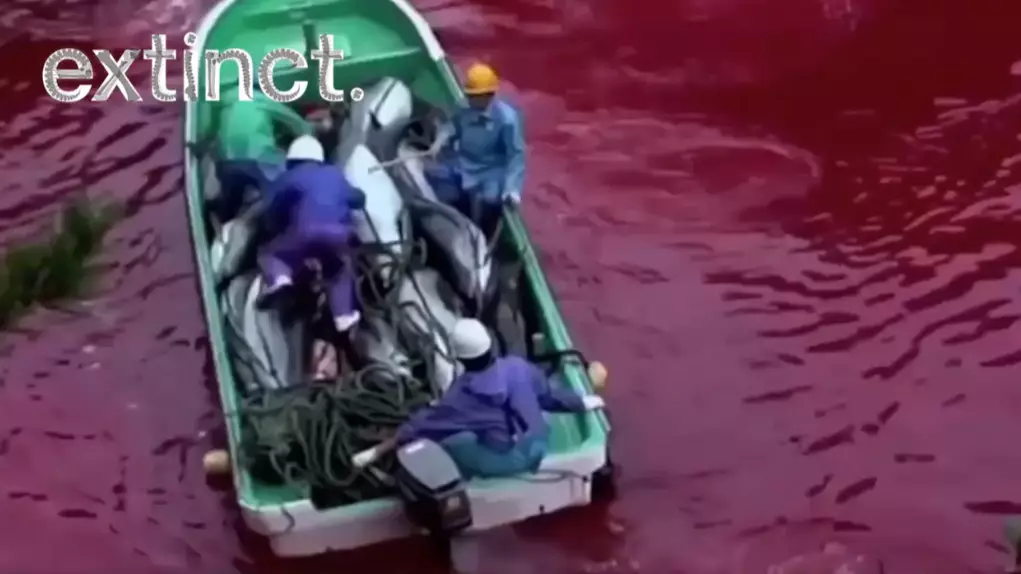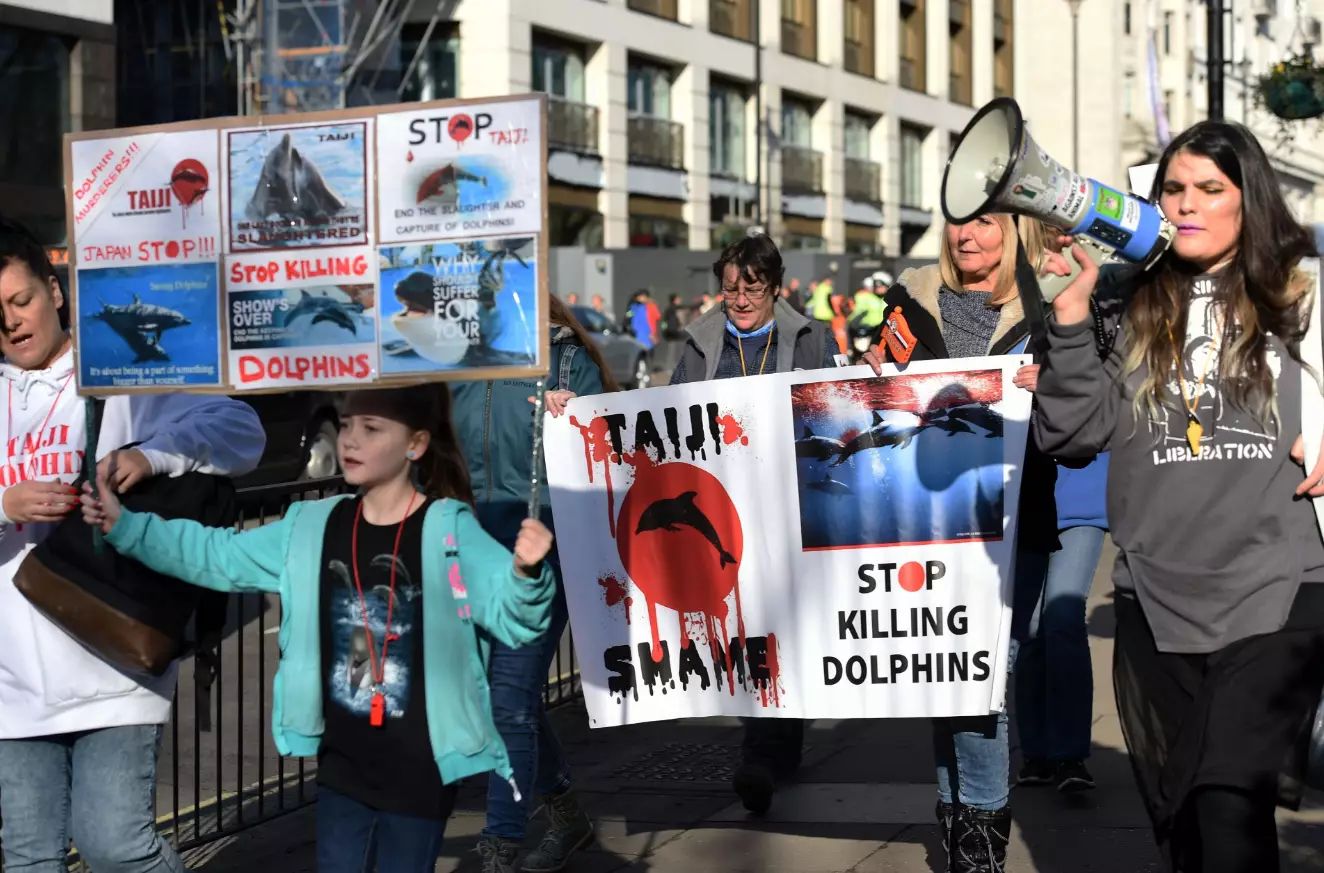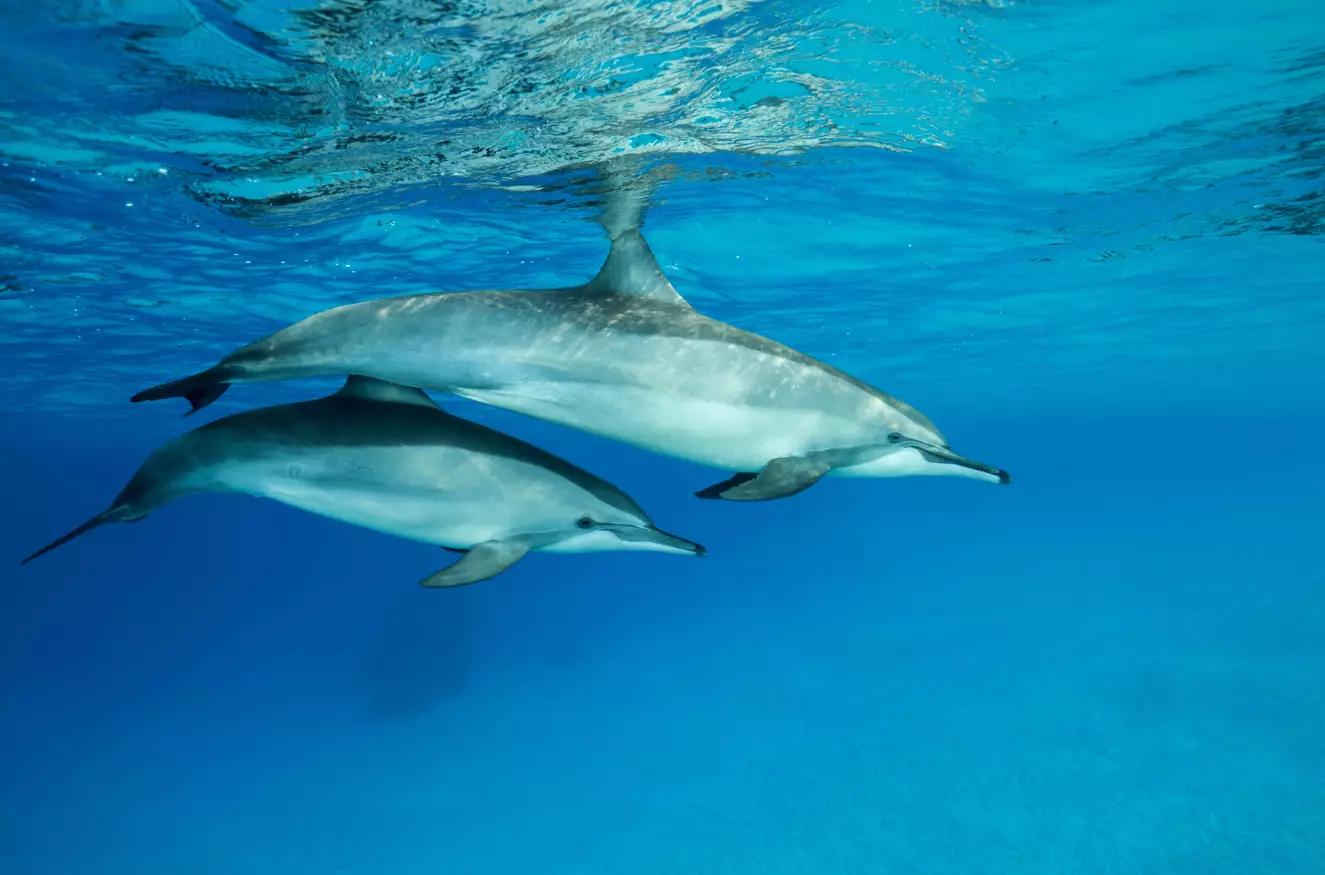
A petition has been set up to stop the cruel practice of dolphin-hunting in Taiji, Japan, where wild dolphins are herded into a cove before the best looking are shipped off to marine parks - while the rest are brutally killed and sold as pet food.
WARNING: CONTAINS GRAPHIC AND UPSETTING CONTENT
The petition - which was set up by Melbourne and London-based marine animal protection charity Action For Dolphins- hopes to put pressure on the Governor of Wakayama, Yoshinobu Nisaka, asking him not to sign a permit that allows the hunt to take place each year between September and March.
Advert
"The hunters head out to sea and once they locate a pod of dolphins, place large metal poles into the water and bang on the top of them," Hannah Tait, Public Engagement Officer at AFD, tells LADbible.
"This creates a wall of sound which terrifies the dolphins. The dolphins become disoriented and confused, swimming away from the sound.
"The hunters herd the dolphins back to shore and into a cove and net it off so no dolphin can escape."

Tait adds that the 'drive' hunt can last man hours, with many dolphins dying from cardiac arrest or drowning in the process.
Advert
The next morning, dolphin trainers pick out the 'best looking' dolphins, which are then sold for thousands of dollars to marine parks, where they will spend the rest of their lives performing tricks in pools.
Tait continues to explain that there's an even darker reality lying in store for the other captured dolphins.
"For those that are left behind, they are stabbed to death for their meat," she says, adding that the method used by hunters to kill them is 'brutal'.
Apparently, a metal rod is repeatedly inserted behind the creature's blowhole, before wooden wedges are forcefully inserted into the open wounds - preventing blood seeping out into the cove, visible for observers.
Advert
AFD says that Taiji claims the reason by the hunt is pure and simple: tradition. However, regular dolphin drive hunts on this scale only date back to 1969
"In reality, the primary motivation for the hunts is the capture of dolphins to be sold live to aquariums for what can be more than AU$100,000 per dolphin," Tait says.
"It's a multi-million dollar industry, with international exports alone of over AU$15 million in the past decade."
While it is illegal for aquariums in countries like Australia and the US to acquire dolphins from drive hunts, dolphins are taught to do tricks and sold on marine parks in other nations like Japan, China and the Middle East - where there is often little or no animal welfare legislation.
Advert
Those not deemed suitable for aquariums, on the other hand, are slaughtered for meat.
And apparently Taiji isn't the only place in the world where this takes place.
"Similar hunts of small cetaceans occur in the Faroe Islands, Solomon Islands, Indonesia and Peru," Tait continues.
"The main issue is that many people don't realise when they see dolphins in marine parks they may have come from horrific hunts like those in Taiji.
Advert
"Because of the way their jawlines have evolved, dolphins always look like they're happy but this masks the truth that dolphins suffer terribly in aquarium pools. These intelligent mammals travel long distances in the wild and cooped up in a small space, many go slowly mad with boredom and stress."

AFD estimates that, over the past 70 years, more than one million whales and dolphins have been killed in Japan's coastal hunts.
However, this petition will help put ongoing, international pressure on the Governor of Wakayama to change this history with a stroke of his pen. The charity is also preparing to bring to hit Taiji with legal action - something that endorsement from across the globe will only give momentum to.
And along with signing the petition, Tait says everyday people can also help bring an end to the horrific hunts in one simple way: "Choosing not to visit dolphins in captivity."
Extinct: A race against time to save our endangered species. Read more from our campaign here.
Featured Image Credit: Oceanic Preservation SocietyTopics: Extinct, World News, Dolphins, News, Animals